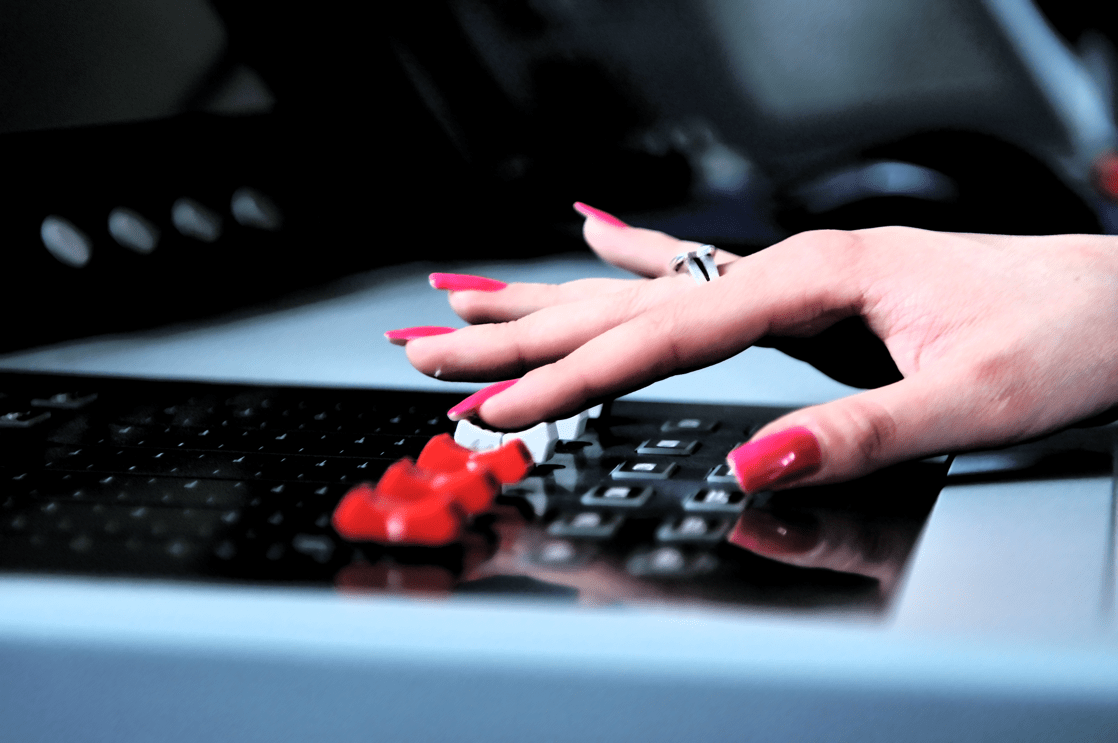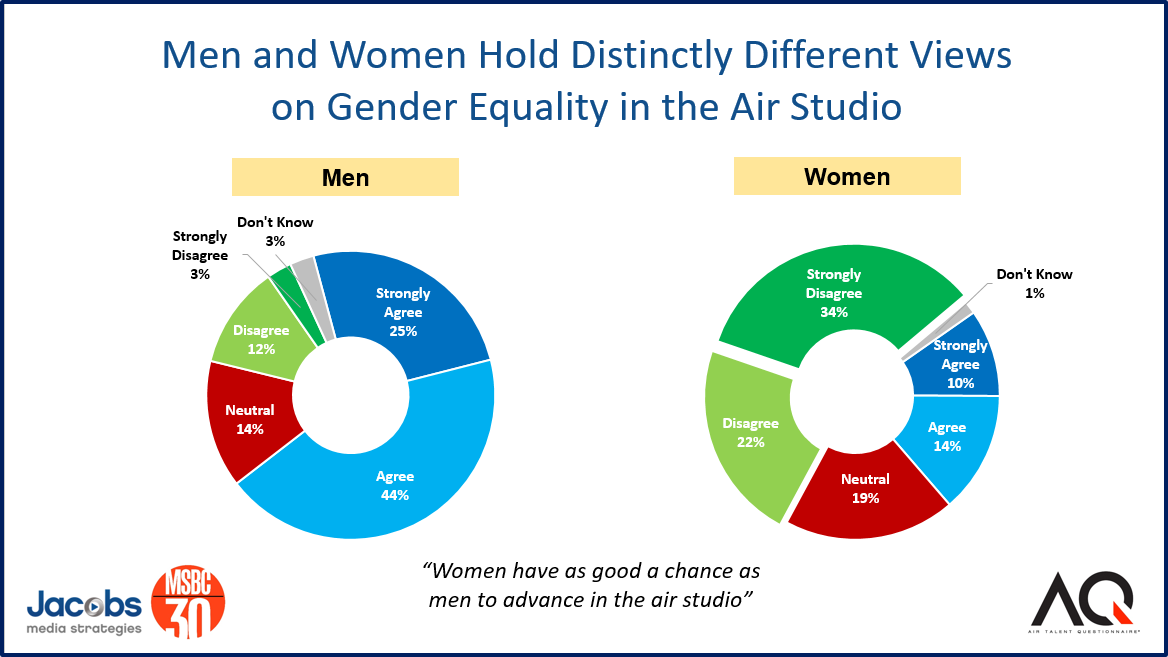 It’s hard for me to believe, but 10 months ago, Jacobs Media launched the first ever “talent on talent” research study – known as AQ. We appropriately partnered with Don Anthony’s Morning Show Boot Camp, and the maiden presentation of this landmark research study kicked off their 30th anniversary conference in Chicago in 2018.
It’s hard for me to believe, but 10 months ago, Jacobs Media launched the first ever “talent on talent” research study – known as AQ. We appropriately partnered with Don Anthony’s Morning Show Boot Camp, and the maiden presentation of this landmark research study kicked off their 30th anniversary conference in Chicago in 2018.
We were overwhelmed by the response to AQ. More than 1,100 air personalities – morning shows, daypart jocks, talk show hosts, and producers – responded to our invitation to take the survey. And when the smoke cleared and the data was analyzed, we had a much better idea of what radio talent is thinking about, obsessing over, and aspiring to achieve.
Most media observers – inside and outside radio – agree that air talent is, in fact, the industry’s secret sauce. It’s something broadcast radio has over every other medium. It’s talent that makes strong audience connections, creating an intimate bond in local markets, whether they ply their craft on talk or music stations.
We learned a great deal from last year’s AQ study, but some of the findings that stood out to me revolved around the role of women in the air studio. First, we discovered the ratio of male:female DJs is 75:25. That’s not a surprise, given the way radio stations in markets big and small have evolved.
But what stopped us in our tracks was this finding about perceptions of gender equality in radio studios:

As you can clearly see above, there are very different views of this topic – driven heavily by your gender. Nearly seven in ten men agree that women have the same fighting chance as men to get ahead on the air. Less than one-fourth of women agree with that notion.
That perceptual abyss underscores the importance of this research, and we’re going back into the field to track some of the key findings. Have things changed? Has the so-called “Year of the Woman” made its way to the radio air studio?
And of course, we have many other questions we’ll ask again, as well as a whole series of queries that are new. (More on how you can suggest topics at the end of this post.)
There are signs in the larger media world that change is, in fact, happening as 2019 is finishing up its first quarter. And in radio circles, women are making their collective presence known. Ellen K.’s success on KIIS-FM, while on NPR’s great “tent pole shows” – that is, “Morning Edition” and “All Things Considered,” Audie Cornish, Mary Louise Kelly, Noel King, and Rachel Martin can all be prominently heard during public radio’s most listened-to news magazines.
And it’s happening on the television side, too. Margaret Brennan became the only female solo anchor of a Sunday morning news show last year at this time.

And earlier this week, it was announced that YouTube star Lilly Singh will replace Carson Daly on NBC’s weeknight lineup on a new show aptly called “A Little Late With Lilly Singh.”
This new show starts in September, and airs weeknights 1:35am. And Singh breaks every TV talk show rule.
She’s openly bisexual.
She an Indian-Canadian who grew up in Toronto.
She has 14 million YouTube subscribers
Her nickname/handle is IISuperwomanII.
She’s been in a movie and has written a book.
She supports good causes, like UNICEF and a campaign she started called “GirlLove” whose mission to put an end to girl-on-girl hate.
She has been honored with a People’s Choice award, four Streamy awards, and an MTV award.
She is a natural entertainer. Her “How Girls Get Ready” video shot in 2013 has more than 28 million views.
Lilly Singh is proof positive that women’s media roles are changing. And our AQ2 study will continue to track the progress of women and radio, along with other key topics impacting life in an air studio: Social media, podcasting, salaries, agencies, key skills, career aspirations, and attitudes toward entertainment, community, and radio’s future.
It is so important for those of us in the radio business – on the air, in sales, and in management/ownership – to gain a better understanding of what makes air talent tick. This is how we grow the industry, and nurture our most important asset: personality.
If you’re on the air, we need your help. For the next few weeks, we’ll be collecting two things from you:
- Topics that you’d like to see included in AQ2.
- Email addresses from personalities (commercial radio only – for now) in any size market, all formats, dayparts, full-time or part-time, as well as producers who want to be sure they participate in the survey.
You can email me with your ideas and your email address here.
We’ll put together a fast-moving, actionable presentation to kick off Morning Show Boot Camp’s 31st conference, once again this year in Chicago on August 8-9.
You can learn more about the conference and register for it here.
In the meantime, the world is changing. And so is broadcast radio.
We’re excited to be working together with you to tell the story.
See the Air Talent Questionnaire Results
Want to see more about what we learned our first annual Air Talent Questionnaire?
- What’s On Your Bucket List? - March 31, 2025
- “Honey, would you please talk to Alexa?” - March 28, 2025
- On The Radio, It’s Always 5 O’Clock Somewhere - March 27, 2025




Air Talent indeed is the secret sauce but big corporations really don’t like the amount of power that air talent can develop.
Maybe, but the more the media landscape sorts itself out, the more the personality pathway is the obvious one. Playing great testing songs (with 12 minutes of commercials an hour) is not a sustainable strategy. Personalities can make a music station more local and more interesting. On spoken word stations, they’re the whole thing.
I really must remain anonymous, but I’d like to weigh in. Our pay is just now getting close to our mail co-workers, and that’s really nice. One thing I’ve noticed, is the anger is still there. I had a male co-worker yell at me over and over that managing 2 stations would be “too hard”. He was YELLING, and when I asked why, as we have 2 other male managers who handle two stations, he just kept yelling that it would be too hard for me to come up with liners and promotions for both stations. I continue to ask why, when 2 guys were doing it here, and he just kept yelling it’s too hard. I also come across a bias when programming music. The men tell me they’re the target of my format, and women are a lucky accident, so my voice is irrelevant.
Year of the woman, not so much. Year of awakening, I think we’re in it.
Appreciate you sharing your experience. As an industry and a society, we have a long way to go. It always starts with awarness, and then works its way throughout the system. Hopefully, we’re getting there. although at a pace that probably feels very glacial.